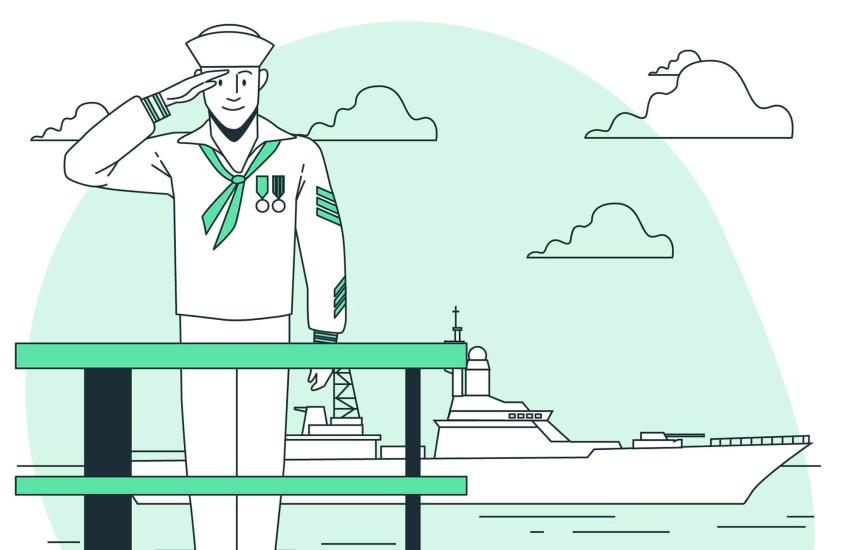Breadcrumb
-
Guidebook
-
Marine Conservation
-
Marine Conservation Careers and Professional Development
Marine Conservation Careers and Professional Development

Marine conservation presents a wide range of fulfilling career prospects for those deeply dedicated to preserving the oceans and marine ecosystems. Keep in mind that a job in marine conservation requires steadfast dedication, tenacity, and a sincere desire to protect marine environments. Follow your passion, seize possibilities for professional advancement, and make a positive impact on the preservation of our priceless oceans.
A. Building a career path in marine science and conservation
- Obtain a relevant degree: Study marine biology, marine science, marine ecology, or a related topic for a bachelor's or master's degree. You will have a firm awareness of marine habitats and their conservation thanks to this educational foundation.
- Gain practical experience: Look for internships, volunteer roles, or research assistant-ships with government, academic, or nonprofit organizations dedicated to marine conservation. Your knowledge and abilities will be improved by this practical experience, and you'll also expand your professional network.
- Develop specialized skills: Acquire specialized skills relevant to marine conservation, such as data analysis, GIS mapping, underwater survey techniques, policy analysis, or environmental impact assessment. These skills will increase your competitiveness in the job market.
- Network within the field: Attend marine conservation-related conferences, seminars, and workshops to network with experts and academics in the field. Participate in online forums and professional organizations to grow your network and remain up to date on the newest trends.
- Pursue certifications: Consider obtaining certifications like dive certifications, scientific diving certifications, or project management certifications, depending on your career goals. These certifications can enhance your skill set and demonstrate your dedication to professional development.
B. Continuing education and professional development resources
- Workshops and training programs: Engage in workshops and training programs offered by marine conservation organizations, universities, and research institutions. These programs offer specialized knowledge and skills in areas such as marine policy, conservation strategies, and data analysis.
- Online courses: Explore online platforms that provide courses in marine science and conservation. Coursera, edX, and Khan Academy, among others, provide a large choice of marine-related courses, many of which are either free or available at a low cost.
- Professional conferences and events: Attend marine conservation conferences, symposiums, and seminars. These gatherings of specialists in the area provide invaluable chances for learning, networking, and staying current on the newest research and conservation practices.
- Professional organizations: Maximize your involvement in marine conservation by considering membership in professional organizations such as the Marine Conservation Society, the Society for Conservation Biology, or the International Marine Conservation Congress. These associations offer valuable resources, publications, job boards, and networking opportunities crucial for professionals in the marine conservation field. Joining them allows you to enhance your knowledge, connect with like-minded individuals, and contribute significantly to the conservation efforts of our oceans. Elevate your commitment to marine conservation by volunteering with these professional organizations.
C. How do I start a career in marine conservation?
A career in marine conservation necessitates a mix of education, experience, and passion. Here are some starting points:
- Research career options: Familiarize yourself with the diverse career paths in marine conservation. Understand the qualifications, skills, and responsibilities associated with each role to align with your interests and goals effectively.
- Obtain relevant education: Study marine biology, marine science, or a similar subject to get a degree. To get the practical experience you need for learning, look for programs that offer possibilities for fieldwork or research.
- Gain experience through internships and volunteering: Look for volunteer or internship opportunities with governmental or academic institutions that support marine conservation. You will gain insightful knowledge from this practical experience, and it will enable you to network in the industry.
- Build a professional network: Attend workshops, conferences, and other events about marine conservation. Make connections with experts and researchers to benefit from their knowledge, get suggestions, and learn about prospective career options in the industry.
- Stay informed and engaged: Stay updated by reading scientific literature, following marine conservation news, and engaging with online communities dedicated to marine conservation. This proactive approach will ensure you're informed about current issues, research, and emerging trends in the field.
Seeking mentorship and guidance is crucial. Reach out to professionals in the field and ask for mentorship. They can offer valuable advice, insights, and support as you navigate your career path in marine conservation.
Building a successful career in marine conservation demands dedication, continuous learning, and a true passion for the oceans. By obtaining the relevant education, gaining practical experience, and actively engaging with the field, you can work towards making a meaningful and positive impact in marine conservation.

